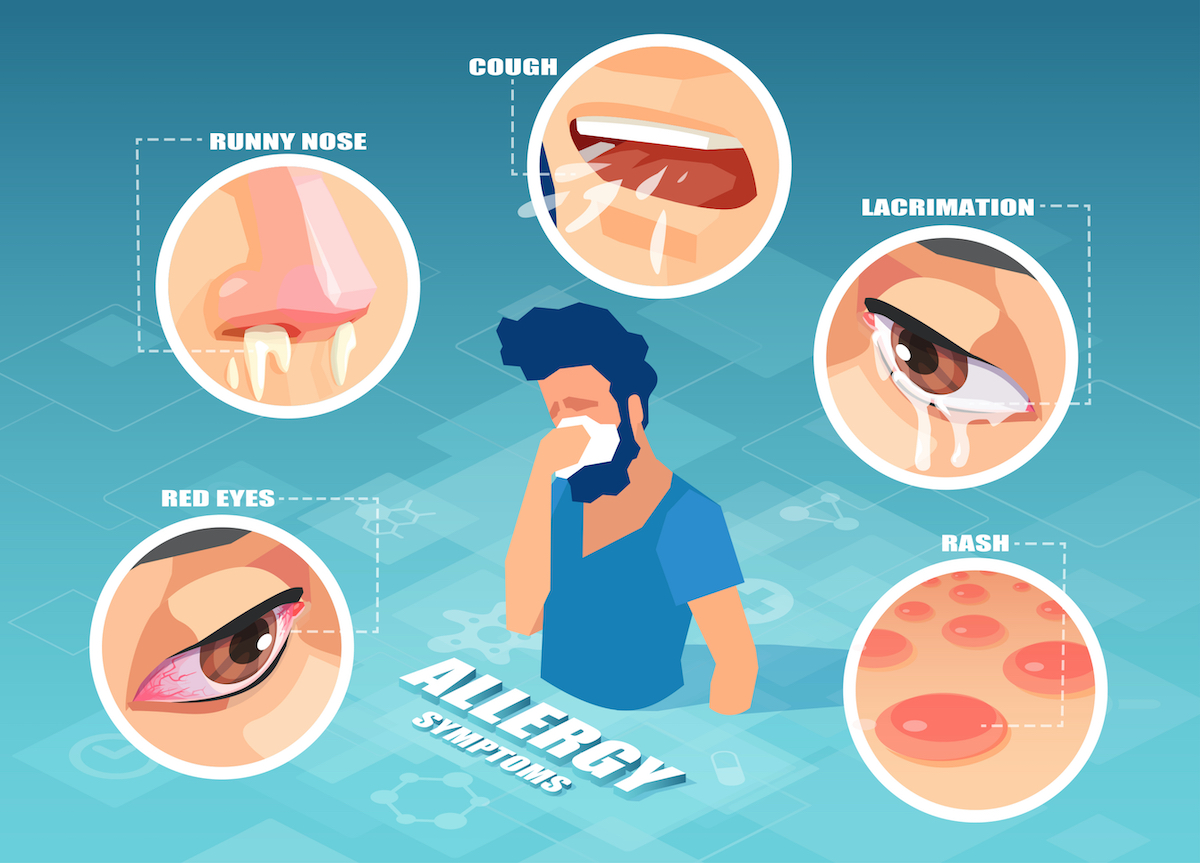Most people experience mild to moderate allergy symptoms, but there are allergy types that can cause serious symptoms. People can be so allergic to an allergen that they go into shock. This is called anaphylaxis. Symptoms of an anaphylaxis include shock, loss of consciousness, low blood pressure, shortness of breath, skin rashes, weak pulse, and nausea & vomiting. Anaphylaxis is more common in the following types of allergies: food allergies, insect sting allergies and drug allergies.

Allergy Symptoms
Fortunately, only a small proportion of patients have such severe symptoms. Symptoms can vary by type of allergy, as well as in intensity. Symptoms per type of allergy may include:
- Food allergies: tingling in the mouth, swelling of the mouth, tongue, face or throat and hives
- Skin allergies: itchy and/or red skin, and flakes or peels
- Indoor allergies: sneezing, itching nose/eyes, runny/stuffy nose, watery, red and/or swollen eyes
- Outdoor allergies: sneezing, itching nose/eyes, runny/stuffy nose, watery, red and/or swollen eyes.
- Drug allergies: hives, itchy skin, rash, facial swelling, and wheezing
- Latex allergies: itchy and/or red skin
- Insect allergies: large swelling around the sting/bite, itching body, hives, cough, chest tightness, wheezing, or shortness of breath
Allergy Treatment Options
When you suspect you’re suffering from an allergy, make sure to contact your professional healthcare provider. He or she will give you an allergy test and see if your suspicions are right. After making the right diagnosing, he or she will set up a treatment plan. Treatment options include:
- Antihistamines
- Decongestants
- Nasal sprays, like topical nasal steroids or topical nasal antihistamines
- Asthma medications, (inhaled) bronchodilators, or inhaled steroids.
- Immunotherapy
- Saline Irrigation
- EpiPen
Contact 911 or seek medical help immediately if you suspect you or someone else is getting an anaphylaxis. In case you – or someone else – carry a EpiPen, give the shot as soon as possible. The sooner someone gets medical attention, the less damage is done. Make sure to contact your professional healthcare provider after administering the shot.
Getting the right diagnosis is extremely important because that’s the only way to get proper help. Unfortunately, there isn’t a cure for most allergies, but with the right treatment, symptoms are manageable. The above-mentioned treatment options are the most common. It’s important to find a treatment that suits you and manages your symptoms. Also, make sure you are adequately informed, so you know what to expect. We want to help you with your search to make life a little easier. Start here:

